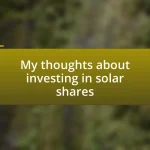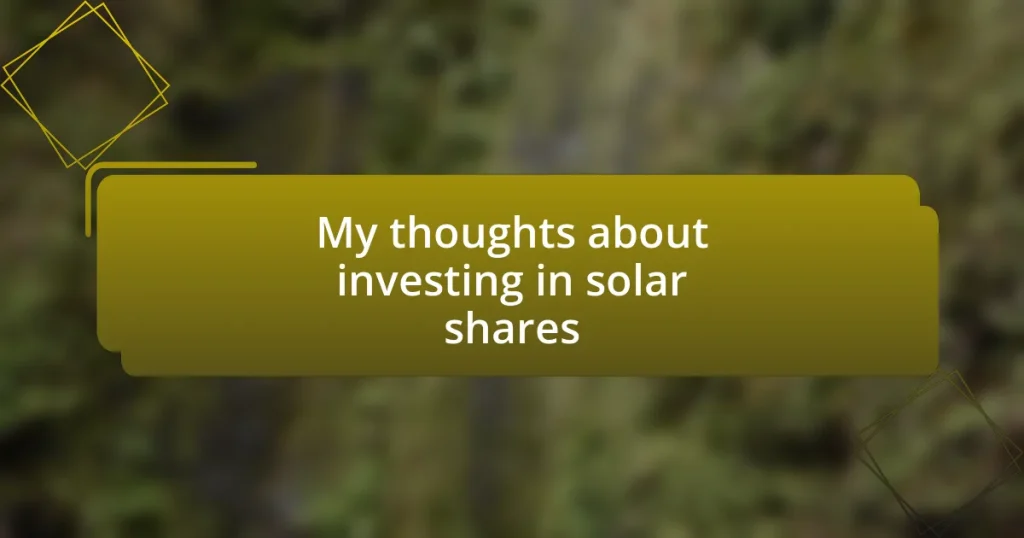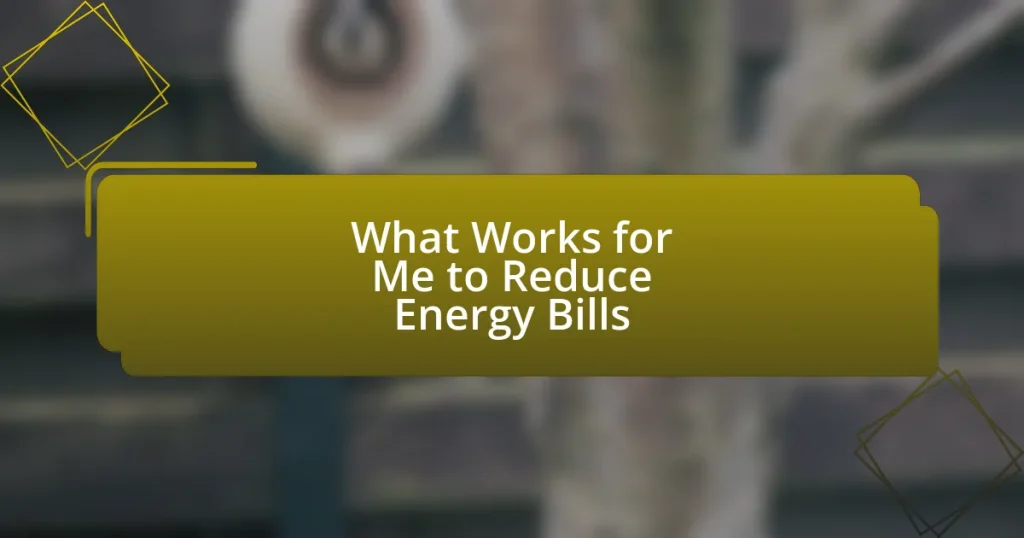Key takeaways:
- Investing in solar shares not only supports sustainability but has the potential for long-term financial gains driven by industry growth and innovation.
- Key investment risks include regulatory changes, raw material volatility, and competition from emerging technologies, emphasizing the need for diversification.
- Selecting reliable solar companies involves evaluating their track record, financial health, and commitment to sustainability and ethical practices.
- Long-term benefits of solar investing include consistent growth aligned with renewable energy trends and the emotional satisfaction of contributing to a greener planet.
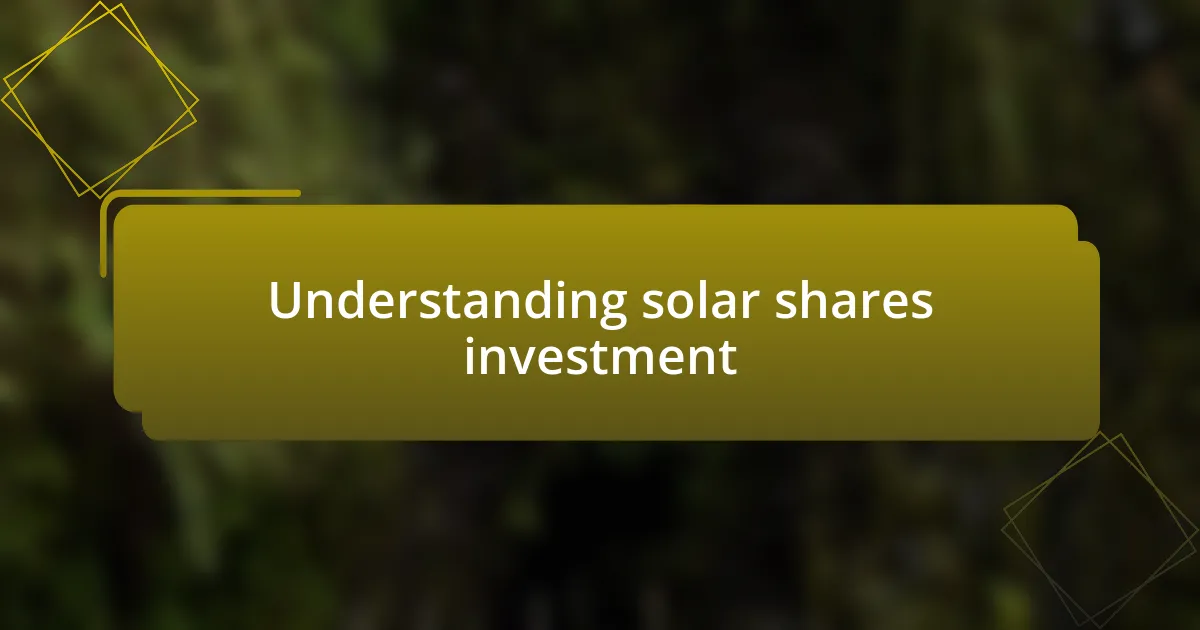
Understanding solar shares investment
Investing in solar shares can be an intriguing way to contribute to a sustainable future while potentially reaping financial rewards. I remember when I first considered this option; I felt a mix of excitement and apprehension. Would my investment really make a difference, or was I just chasing a trend? The reality is that solar energy is growing, and many companies in this sector are expanding rapidly.
It’s essential to understand how solar shares operate within the larger context of renewable energy. Companies that produce solar panels, develop technology for solar energy conversion, or manage solar farms can offer varying levels of return. Reflecting on my own experience, I found it helpful to research individual companies’ financial health and projects to grasp what my money could support. Have you ever thought about which companies genuinely align with your values?
While the potential profits are enticing, it’s also vital to consider market volatility and technological change, which can significantly impact solar investments. Sometimes, I have felt uncertain watching renewable energy stocks rise and fall. However, I remind myself that being informed and patient can lead to rewarding long-term gains. How do you feel about balancing the risks and rewards in this growing market?
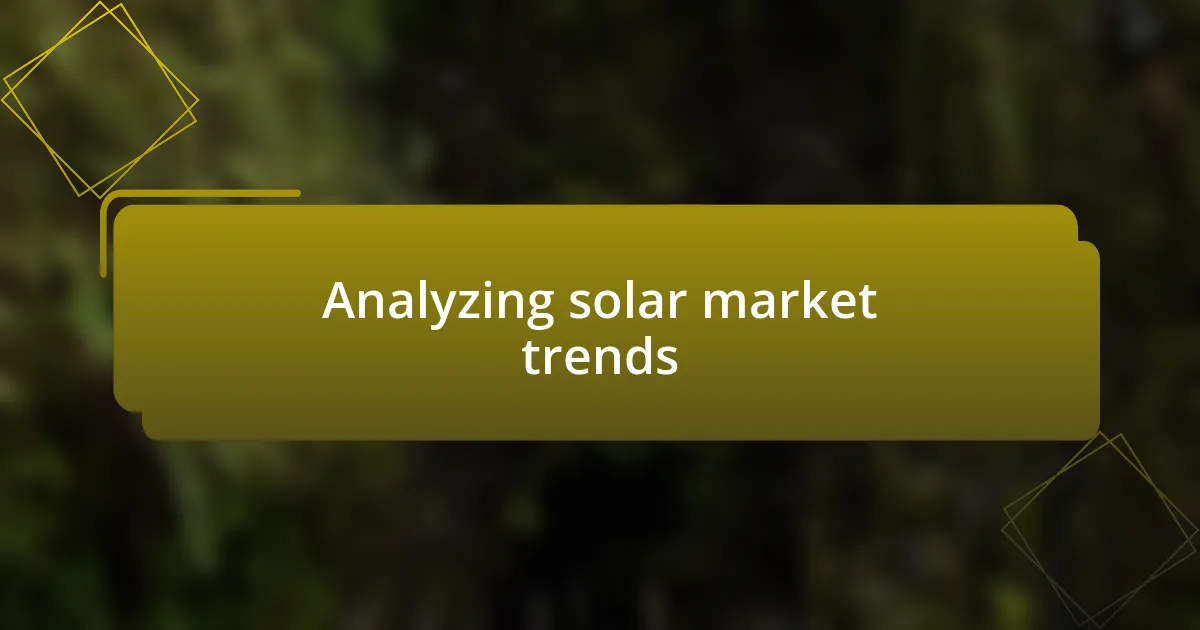
Analyzing solar market trends
Analyzing solar market trends involves looking closely at various factors that influence the industry. From my observations, the market has experienced a robust growth trajectory, driven by governmental incentives and a shift towards cleaner energy. I recall my initial reactions to market reports; seeing how many countries are investing heavily in solar infrastructure ignited my interest even further.
Here are some key trends I’ve noticed:
- Increased investment in solar technology and innovation.
- Rising consumer demand for sustainable energy solutions.
- Greater corporate commitments to renewable energy sources.
- Fluctuations in raw material prices affecting solar panel costs.
- The emergence of new markets globally, especially in developing nations.
These trends underline the solar market’s dynamism, and I often find myself revisiting the statistics to analyze where the next opportunity might arise. Each data point offers a glimpse into potential shifts in the market landscape, shaping my investment decisions.
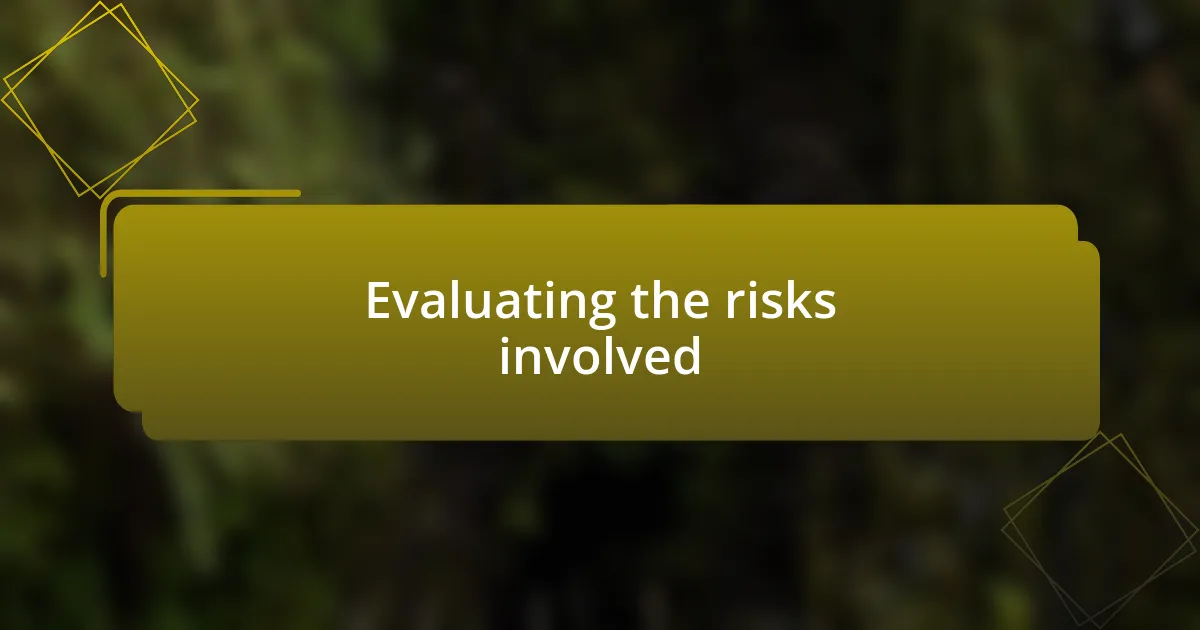
Evaluating the risks involved
Evaluating the risks involved with investing in solar shares requires a keen understanding of both market dynamics and external influences. One of the most significant risks is regulatory changes. For instance, I remember the uncertainty we faced last year when governments shifted policies suddenly, affecting subsidies for solar energy. This unpredictability can sway market sentiment, making it crucial for investors to stay informed about legislative developments.
Additionally, the volatility of raw material prices presents another layer of risk. I still recall a conversation I had with a colleague who invested in solar shares just before a surge in silicon prices. It was a tough lesson—while the market was booming, the underlying costs significantly impacted profit margins. Monitoring these fluctuations can be the difference between a sound investment and a financial stumble.
Finally, competition from emerging technologies poses a continuous challenge in the solar sector. As new alternatives enter the market, I reflect on how important it is to diversify investments. Relying solely on solar shares might close off opportunities in other renewable avenues that could offer stability in an evolving landscape. Diversification, from my viewpoint, is essential for managing risks effectively.
| Risk Factor | Description |
|---|---|
| Regulatory Changes | Potential shifts in government policies providing incentives or subsidies for solar energy. |
| Raw Material Volatility | Fluctuating prices of essential materials like silicon can impact costs and profit margins. |
| Technological Competition | Emerging renewable technologies could affect the demand for solar energy investments. |
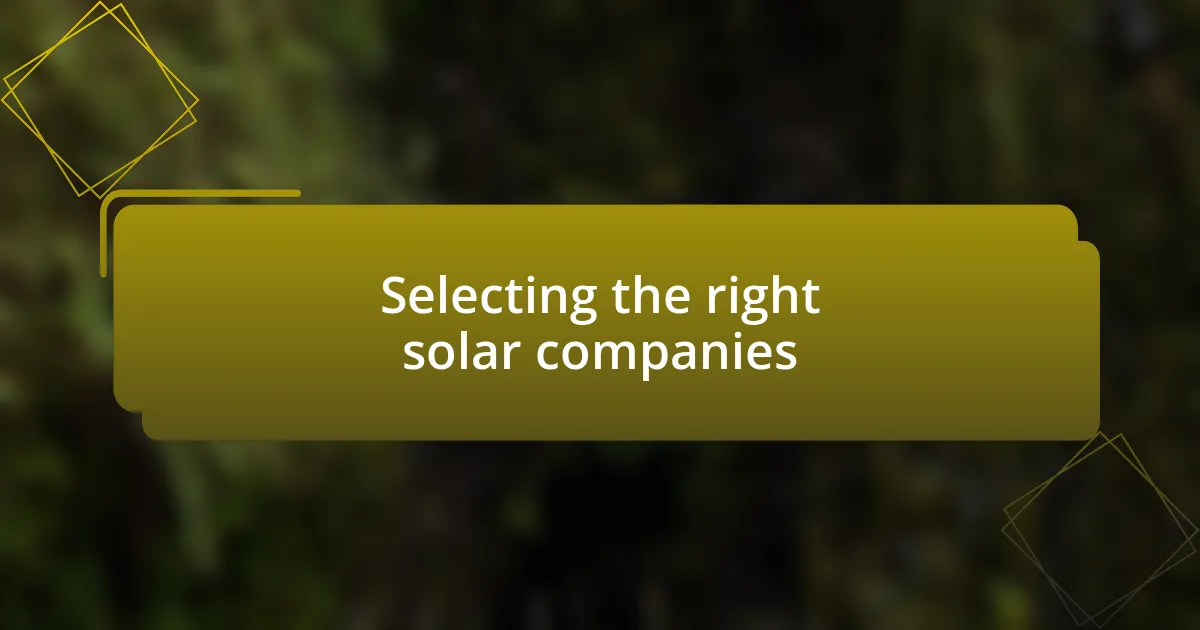
Selecting the right solar companies
When it comes to selecting the right solar companies, I’ve learned firsthand how vital it is to evaluate their track records and reputation in the industry. I remember a time when I invested in a relatively unknown company that promised innovative technology. Unfortunately, it turned out that they had a history of missed project deadlines and quality issues, which ultimately affected my investment. Researching a company’s past performance can provide invaluable insights into its reliability.
Another key factor I consider is the company’s financial health. Have you ever worried about a company’s ability to weather a downturn? I sure have. I once overlooked a solar firm with impressive growth projections but weak balance sheets, and when the market shifted, it struggled to stay afloat. A thorough analysis of financial statements can reveal a lot about a company’s stability and growth potential.
Lastly, I always look for companies that emphasize sustainability and ethical practices. There’s a difference between a company that merely markets itself as “green” and one that genuinely invests in sustainable practices. I recall a conversation with a friend who invested in a firm boasting eco-friendly initiatives, but their operations told a different story. Choosing companies with transparent and ethical practices aligns not only with my values but also builds a foundation for long-term trust and investment security.
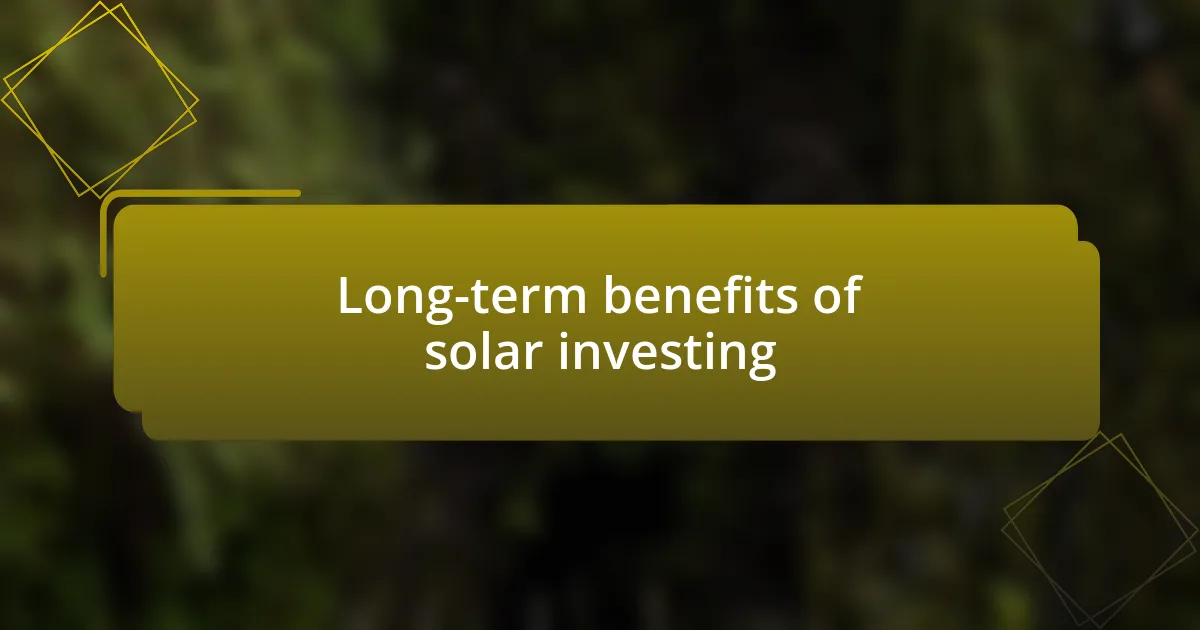
Long-term benefits of solar investing
Investing in solar shares offers numerous long-term benefits that go beyond the immediate returns. From my perspective, one of the most rewarding aspects is the potential for consistent growth in line with the global shift towards renewable energy. I remember when I first realized that countries are increasingly committing to reducing carbon emissions; this shift isn’t just temporary. It opens the door for solar companies to thrive, positioning them for sustained profitability over time.
Moreover, the technology behind solar energy continues to advance at a remarkable pace. Reflecting on my own experiences, I once invested in a solar company that leveraged cutting-edge technology to improve energy efficiency. Over the years, I’ve seen their innovations not only enhance their market position but also correspondingly increase my investment’s value. This growth isn’t just from market demand; it’s also about their ability to adapt and push boundaries, which adds an extra layer of assurance for long-term investors.
Lastly, there’s a profound emotional satisfaction that comes with investing in solar energy. I deeply resonate with the idea that my investment contributes to a greener planet. Have you ever felt a sense of pride knowing you’re part of a solution for climate change? That’s a feeling I cherish. It’s not just about financial gain; it’s also about investing in a future I believe in, which brings an invaluable sense of purpose and fulfillment to my portfolio.










